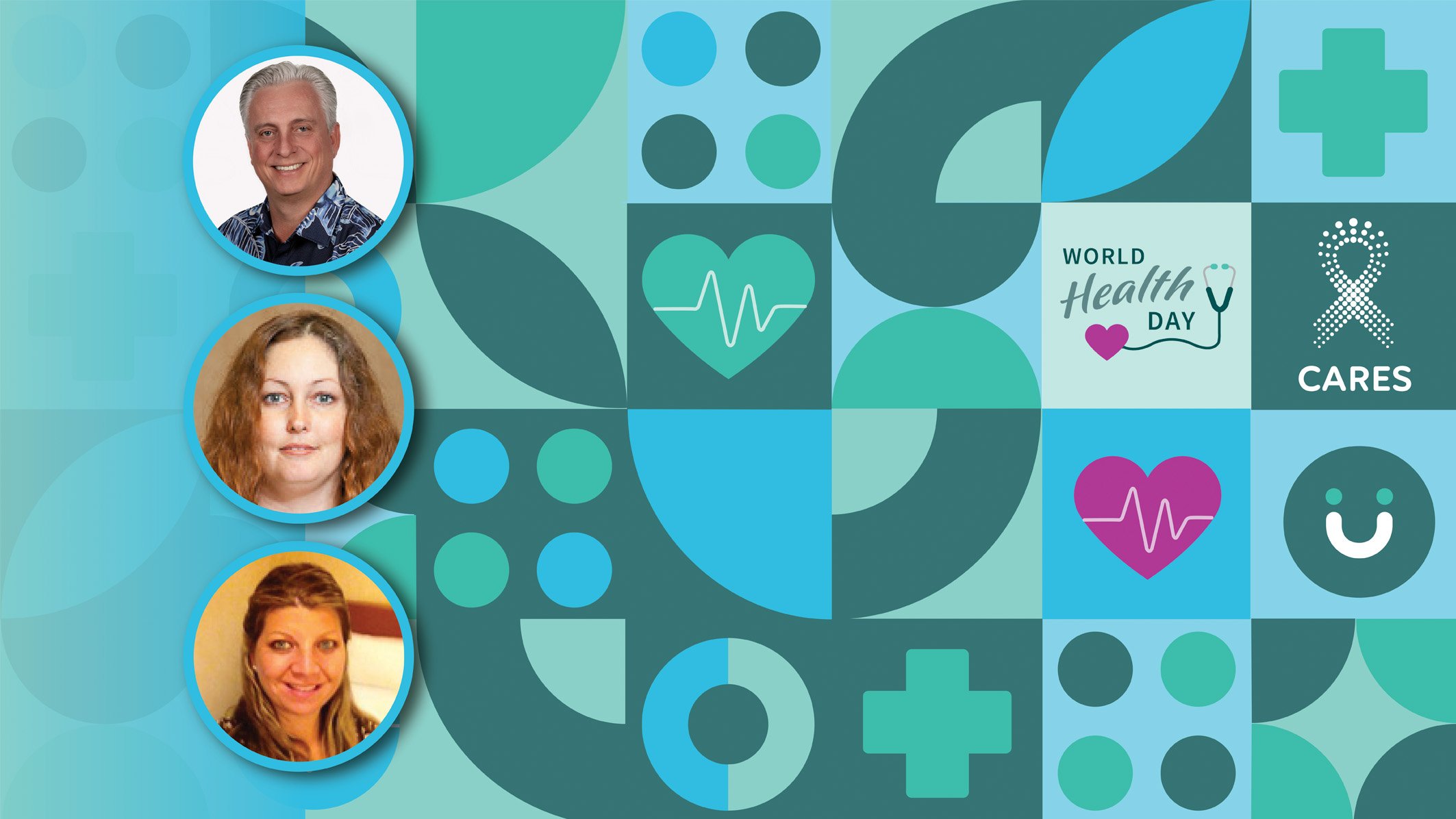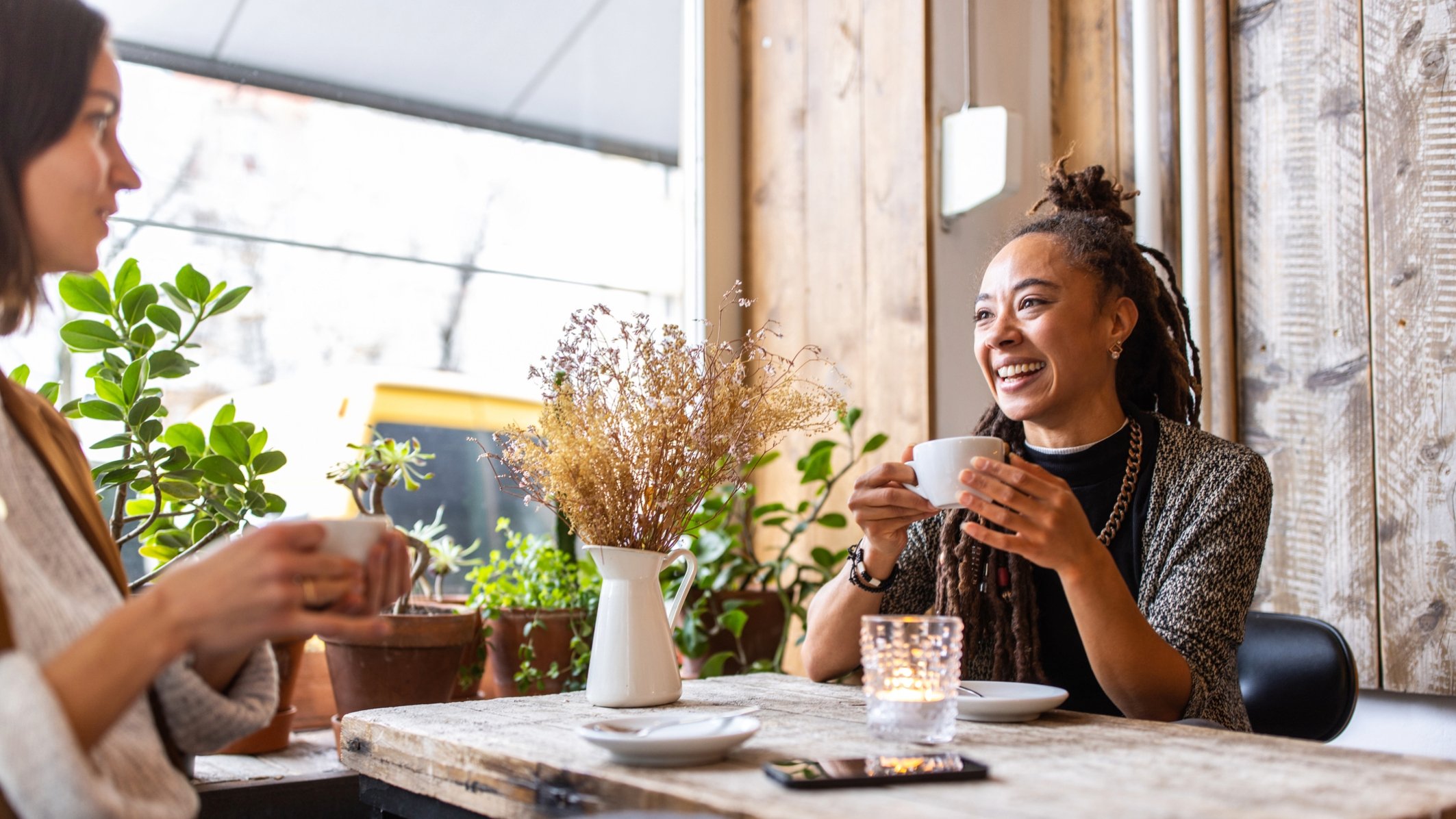Amber's journey with UKG began approximately two and a half years ago as a member of the Flex Team in Atlanta. After six months, she had an opportunity to work with the Garnishment Team, made a great impression, and was quickly brought on as a Garnishment Administration Specialist. She has held this position for almost two years. Amber has also served as the treasurer for the ADAPT (Accessibility and Disability Allies Partner Together) Diversity Network at UKG for the past year. Amber joins fellow-U Krewers Cecily Tyler and Lona Fink in this insightful exchange.
Amber, do you refer to yourself as a person with a disability? I was born with a congenital amputation of my left forearm. I often refer to myself as someone with a physical difference since I prefer to live without a prosthesis and have for the majority of my life. As an African-American woman, mother, and creative living with a physical difference, I am extremely passionate about exploring, celebrating, and redefining the factors that contribute to individual and collective identity.
How did your family adjust to you being born with a physical difference? Prior to me being born, my parents had no knowledge of my disability and they had very little interaction with other individuals with disabilities. From the day that I was born, they made the decision that, together, we would figure things out as a family. They did their research and found resources, information, and opportunities for us to spend time with other families raising children with disabilities like mine. Growing up, my family did their best to ensure that I was in control of the decision-making regarding my physical difference and any accommodations. They worked with me every day to ensure that I knew that I was intelligent, capable, and beautifully made. Any time that I faced a challenge, my parents and siblings would allow room for me to process my feelings and reassure me that even if society tried to make me feel like my body was a problem it was not; the true problem lied in the lack of accessibility and others’ understanding and appreciation of differences. My family afforded me a community of people to problem solve with, empathize with, and celebrate me just as I am. They weren’t perfect but they were and still are accountable, active participants in helping me navigate life.
How do you support an individual with a physical or other difference? It’s helpful to remain mindful that we didn’t get to choose our disability, so it’s important that we lead decision making regarding our disability or difference as much as possible, this builds confidence, identity, and agency.
Start by recognizing the individual’s humanity and asking questions to understand their personality and boundaries. Listen to see if there is a need or problem where you can help find a solution and do your best to act according to their needs. Be sure to uphold your word to avoid mismanaging expectations and keep lines of communication open. Remember our needs are ever-changing, so please be flexible. Don’t be afraid to make mistakes, as we all have room for growth. Instead, be accountable and always remain teachable. It’s normal to feel overwhelmed, so make sure you prioritize your own needs and take to rest if you feel burnt out.
How do you deal with fear, uncertainty, low expectations, or unrealistic high expectations? In the past, I’ve proven to be accomplished and talented in many areas, which is great to an extent, but overtime has created an unrealistic expectation (socially and introspectively) that I’m a fearless, superhuman example of overcoming disability. In reality, I’m working on taking things day by day and moment by moment replacing negative self-talk with mini pep-talks. In the times that I’m afraid, self-conscious, or doubtful I think back to all of the things in my past that I was once afraid of that I’ve successfully conquered. I think about the actions that I’ve taken that worked in helping me figure these things out and I pull from those experiences as much as possible to give myself positive reinforcement. I practice mindfulness, forgive myself for mistakes, and give myself grace and time to rest as much as I can. Making these little changes has helped me learn how to shift from operating out of obligation and expectation, to acknowledging and celebrating the everyday actions that I’m making to live my life to its greatest potential.
How has your experience been at UKG? Working at UKG has been eye-opening. This is truly the first time I have been able to bring my entire self to work exactly as I am. I have gone through major life changes since I started here two years ago, and I have always felt like I had the space to be human and that I had wholehearted support. For the first time in my working career, I felt comfortable enough to request accommodation and had my needs fulfilled quickly and appropriately. I am using talk-to-text technology to craft my responses in this very moment.
I have worked in several nonprofit organizations geared toward addressing unique needs of individuals within the disability community, and UKG has been the first place where I have worked alongside individuals with varying degrees of disability or difference. The representation of diversity in all areas here is something for which I am extremely grateful. UKG is not perfect, but our team has proven to be willing to try their best to take the necessary steps to remain diligent in creating an inclusive work environment.
How would you assess the current state of the community of people with different abilities at work? In my experiences with the disability community outside of UKG, it feels like much of our community is still very segmented. The conversation regarding differences is starting to open up in a lot of ways, and while people are talking, it feels like most of the conversations are parallel instead of collective, cohesive conversations regarding disability and accessibility for all members of our community. Something that I often see throughout the media is a push for individual stories to provide general education, answer common questions, and give insight into prosthetics and accessible technology. I believe this is due to the fact that disability and difference are such individualized experiences that people want to tell their stories and be acknowledged; we want to show the public that we are thriving despite adversity. The issue with this notion is finding the best ways to bridge together and mobilize in the midst of such a far-reaching group of individuals. Another issue less discussed are the members of our community who are so attached to their identity that they question the authenticity of the experiences of individuals with a hidden or more covert disability. I think there is an irrational fear that there isn’t enough room for conversation about everyone’s needs. I won’t discount the progress we are making socially and legislatively, but we still have much work to do.
At UKG, I’ve served on the ADAPT committee with individuals whose lives are impacted by disability every day. Each person takes time to listen, understand, and acknowledge the ways that our respective differences bring valuable skillsets to helping our work community better understand allyship inside and outside of the office. We also honor the experiences of caregivers and family member of individuals who are directly affected by disability and difference and invite them to share their stories. We work together to create a safe space for tough conversations within our work community and do our best to amplify different experiences. I think that our strength lies in our firm foundation of appreciation for each other’s unique contributions, our ability to take things step by step, and being transparent within our work community about areas where we are still learning and growing.



